Estimated Reading Time: 8 minutes
Key Takeaways
-
Bulk buying of sweets lowers the unit price and can deliver substantial savings when you require large quantities, but those savings can be negated if you buy more than you can reasonably use.
-
Buying in bulk is ideal for non‑perishable treats that you consume regularly; you should still compare per‑unit prices because bigger packs aren’t always cheaper.
-
Individual purchases offer variety and minimise waste; they’re often better for perishable items, limited storage or trying new flavours.
-
Savings from bulk buying tend to be greatest on branded goods and less impressive on supermarket own‑brand products.
-
Shoppers should factor in hidden costs, such as membership fees, storage, and the risk of overconsumption, as these can erode the financial benefits of buying in bulk.
-
Sustainable consumption matters: bulk packs reduce packaging waste and carbon footprints when you actually use everything inside.
With the cost of living rising across the UK, households in Benoni and beyond are looking for ways to stretch their budgets without sacrificing life’s little pleasures. Sweets and candies remain an affordable indulgence, whether you’re filling a pick‑and‑mix bag for yourself or stocking up for a birthday party. One of the biggest questions shoppers ask is whether it’s cheaper to buy sweets in bulk or as individual treats.
This article provides a value analysis that considers price per unit, shelf life, storage, variety, and sustainability. We’ll also point you to some great resources on the Sweets and Candy website that can help you make the most of your sweet shop.
Understanding Bulk Buying vs Individual Purchases
Bulk buying refers to purchasing larger quantities of a product at once, typically in larger packs or kilogram bags. Individual purchases refer to buying smaller, pre‑portioned packages or single items. The key difference is the price per unit: bulk packs generally have lower unit costs because manufacturers save on packaging, and retailers can offer volume discounts.
Bulk sweets at Sweets and Candy include tubs, 1 kg bags, and multi-pack boxes, making them ideal for parties, corporate events, or regular sweet lovers. By contrast, individually wrapped retro sweets, American candy bars and novelty treats provide an easy way to try new flavours without committing to a big bag.
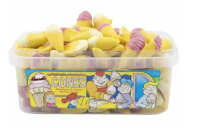
The Economics of Bulk Sweets (Cost and Value)
Lower Unit Costs and Cost Savings
Articles from confectionery wholesalers note that buying candy in bulk dramatically reduces the price per piece; wholesale customers can get their favourite treats at “a fraction of the price compared to buying them individually”.
Academic research indicates that when households purchase larger package sizes, they pay lower unit prices and reduce their overall spending. Even low‑income households could save around 5% on groceries if they used bulk discounts as often as high‑income households.
Price comparisons tell a similar story. A Guardian survey found that a pack of 16 rolls of Andrex toilet paper at Costco costs £7.26 (minimum purchase of 6 packs), while the same item costs £10.40 at Tesco and Asda. That’s roughly a 30% saving, and comparable bulk discounts can apply to branded sweets when you buy in kilogram bags or multi-packs.
However, savings vary by product; the same survey noted that for some goods (such as wine), supermarket prices were similar or cheaper when bought individually. Savings also depend on whether you’re comparing branded items; the Guardian observed that the most significant discounts came on branded goods, while supermarket own‑brand items saw little or no price advantage.
Hidden Costs of Bulk Buying
Bulk buying isn’t automatically cheaper. Investopedia cautions that while buying in bulk lowers the unit cost, it can lead to higher overall spending, particularly if you purchase more than you need. Large purchases require storage space, which can increase household costs for extra freezers or cupboards, and may lead to waste if items expire before they are used.
Researchers also note that the cognitive effort required to compare unit prices discourages low-income households from bulk buying. Warehouse stores typically charge annual membership fees of around £45-£55 and may offer fewer promotional discounts than supermarkets. You should factor these costs into your calculations to ensure bulk buying truly provides value.
Bulk Buying and Waste
Food waste is a genuine concern. UK households still waste around 4.5 million tonnes of edible food each year, worth approximately £14 billion; roughly £700 per average family. Buying perishables in bulk only makes sense if you can use them before they spoil. The Guardian warns that stocking up on fresh produce or dairy in cash‑and‑carry quantities is rarely economical.
For sweets, which typically have a long shelf life, the risk of spoilage is lower; however, humidity and temperature can still affect product quality if they are not stored properly. Individual packs maintain freshness, allowing you to enjoy a variety of flavours without the pressure to finish an entire tub.
Beyond the Price Tag: Variety, Quality and Shelf Life
Variety and Customisation
One of the joys of buying sweets is variety. Buying in bulk can expand your options: you can unlock “a world of variety” with access to classic favourites and hard‑to‑find treats. This makes bulk purchases perfect for events such as weddings, birthday parties or corporate functions; you can set up a colourful sweet table and offer guests a selection of flavours. Bulk sweets also allow small retailers, cafés, and gift shops to create their own branded packages or set up pick-and-mix stations.
In contrast, individual purchases are better suited to personal snacking and experimentation. They give you the flexibility to try new flavours or limited‑edition sweets without committing to a kilogram bag. Individual packs also maintain portion control and can help reduce overconsumption, a practice that financial experts caution against when buying in bulk.
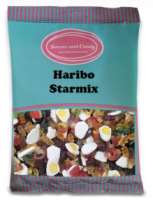
Shelf Life and Storage
Most sweets have a relatively long shelf life, but exposure to heat, light and moisture can degrade quality. When buying in bulk, ensure you have airtight containers or resealable tubs to keep sweets fresh. Advantage CCS, a personal finance counselling service, warns that bulk purchases may not be ideal for items that spoil quickly and emphasises the importance of sufficient storage space. Dairy‑based chocolates, fudge or filled sweets may deteriorate faster, so if you only consume sweets occasionally, it’s safer to buy smaller packages.
Proper storage, however, can turn bulk buying into a green choice. Buying large packs reduces packaging waste: confectionery articles remind us that bulk purchases minimise individual wrappers and “help minimise waste”. Advantage CCS also notes that buying in bulk can shrink the carbon footprint associated with packaging. If sustainability is important to you, storing your sweets responsibly and recycling packaging can help you balance indulgence with environmental care.
Who Should Buy Sweets in Bulk?
Families and Frequent Consumers
Households with several sweet lovers or families that enjoy sweets regularly are prime candidates for bulk buying. Research shows that bulk discounts are often available without waiting for sales or coupons, making them a convenient way to reduce overall spending. Families hosting parties or planning school events can benefit from 1kg of sweets or tubs of pick‑and‑mix sweets, saving both money and time. Bulk purchases also reduce the number of trips to the shop, which saves fuel and effort.
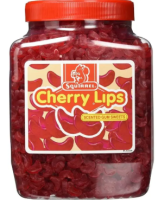
Small Businesses and Event Planners
If you run a café, sweet shop, gift business, or regularly assemble hampers, bulk buying can improve your margins. Wholesale candy articles note that retailers can “offer competitive prices, create enticing promotions and even package their own branded candies” when buying in bulk. The Guardian’s survey identified profit margins (profit on return) of 30% for chocolate bars and up to 55% for certain beverages, illustrating how bulk purchases can enhance profitability when resold.
Households With Budget Constraints
Low‑income households often pay more per unit because they buy smaller packages. Academics estimate that if low‑income shoppers bought in bulk at the same rate as high‑income shoppers, they could save about 5% on groceries. Bulk discounts are particularly valuable for storable goods such as boiled sweets, liquorice or gummy bears, where demand is stable and predictable. However, limited storage and cash flow can be barriers; consider splitting a bulk order with friends or family to share the savings without tying up too much money.
When Individual Purchases Make More Sense
Variety and Experimentation
If you enjoy trying new sweets or only indulge occasionally, individual purchases provide greater variety. Bulk buying offers limited variety and may lead to monotony. Buying single bags or bars lets you sample different flavours, seasonal specials, and imported treats without committing to a large quantity.
Storage and Space Constraints
Bulk goods take up space. If you live in a small flat or lack pantry space, purchasing large tubs of sweets may clutter your cupboards. Without proper storage, you risk spoilage or pests. Financial guides caution that storage space is a significant issue and should be considered before purchasing anything in bulk. If you don’t have a cool, dry area for candy, stick to individual packs.
Avoiding Waste and Overconsumption
Bulk buying can encourage overconsumption. Investopedia notes that having a large quantity of a product on hand may lead you to use more, undermining the savings you hoped to achieve. Buying only what you need reduces temptation and helps maintain moderation. It’s also a smart way to minimise food waste and contribute to the national effort to reduce the £14 billion in edible food wasted each year.
Tips for Maximising Value When Buying Sweets
-
Check the unit price.
Even though bulk packs often cost less per gram, this isn’t guaranteed. Supermarkets sometimes offer discounts on more miniature packs, so compare the unit price displayed on the shelf or online.
-
Shop for non‑perishable sweets.
Hard‑boiled sweets, liquorice, gummy bears and chocolates with long best‑before dates are ideal for bulk buying because they’re unlikely to spoil quickly.
-
Plan your consumption.
Estimate how long it will take to consume the sweets. If you’re buying for an event or business, calculate quantities based on the number of guests or sales forecasts. Overbuying ties up money and increases the risk of waste.
-
Invest in storage.
Store bulk sweets in airtight containers in a cool, dark place to prolong freshness. If you lack storage space at home, consider smaller bulk packs or share an order with friends.
-
Watch for offers and membership costs.
Warehouse clubs often charge membership fees. Consider whether the savings on sweets and other products outweigh the annual cost.
-
Split orders.
Team up with friends, neighbours, or colleagues to buy a large pack and divide it among yourselves. This reduces upfront costs and avoids excess stock.
-
Use bulk sweets creatively.
Leftover bulk candy can be turned into gifts, decorations, or part of a sweet hamper. Visit the gifts and hampers page for inspiration on assembling personalised hampers, perfect for birthdays or corporate thank-you gifts.
Bulk buying versus individual purchases isn’t a one‑size‑fits‑all decision. For families, event planners, and businesses that regularly consume sweets, larger packs offer tangible savings and reduce packaging waste. Just remember to compare unit prices, plan your consumption and ensure you have adequate storage. On the other hand, if you value variety, have limited space or rarely indulge, individual packs may be better suited to your lifestyle.
At Sweets and Candy, you’ll find both options: 1 kg bags and tubs for bulk buyers, as well as an extensive range of individually wrapped treats. Our bulk sweets page offers competitive prices and free shipping on orders over £25, while our gifts and hampers page inspires thoughtful gift ideas.
To learn more about our story and commitment to quality, visit the About Us page. Whether you’re shopping for yourself, your family or your business, choose the option that delivers the best value for your sweet tooth and budget, and let us help you indulge responsibly.
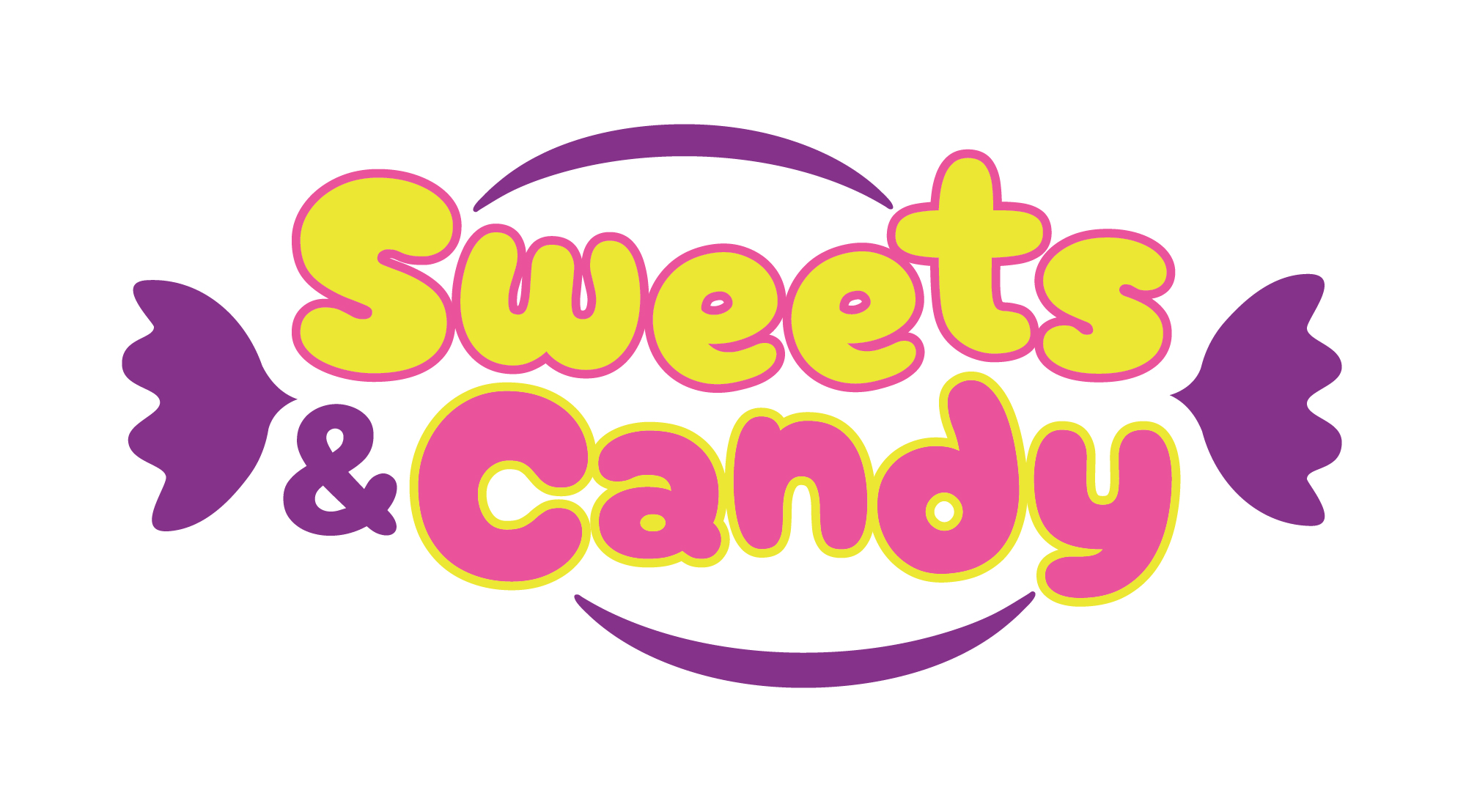
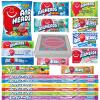


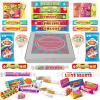

Leave A Comment